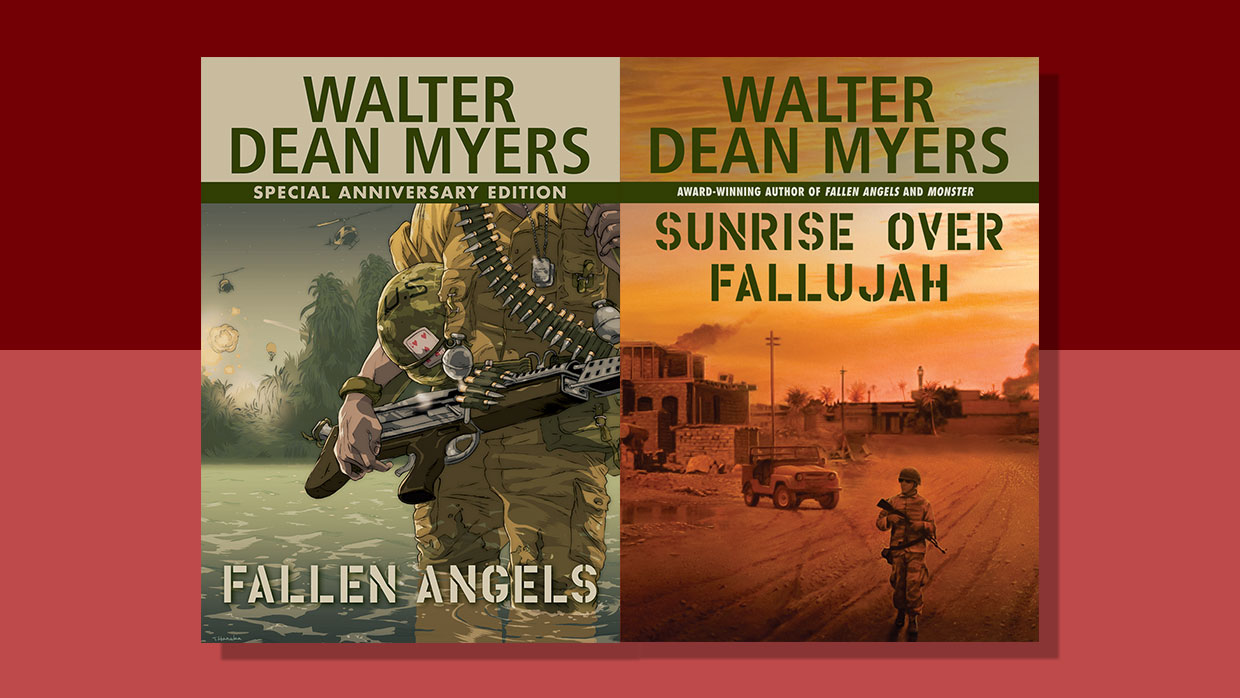To teach high school students about war, and help them think critically about it, teachers must dedicate a significant amount of time to class discussion. Only by talking about war and bouncing ideas back and forth will students begin to understand such a complicated concept.
There’s often a lot of emotion associated with war. Some students may have a close connection to it as a loved one or relative served in the armed forces. Others may have a strong opposition to war, while some students, understandably, aren’t quite sure what to think about it. But no matter where students stand or how connected—or disconnected—they are to war, it’s still important to encourage each one to think deeply about it.
Two books by author Walter Dean Myers open a window into the realities of war and help students explore relevant themes like survival, courage, bravery, death, grief, and loss. In Fallen Angels, Myers tells the story of Richie Perry, a troubled 17-year-old who can’t afford college and is looking for something to do, which leads him to join the military and the war in Vietnam. There he experiences the grim realities of war.
Myers delivers a more contemporary account of war in Sunrise Over Fallujah, which details the challenges and obstacles a young soldier has to overcome during the Iraq War. Robin “Birdy” Perry isn’t even sure why he joined the army, but he knows exactly where he’s headed. In Iraq, he’s tasked with helping secure and stabilize the country, but soon finds himself just trying to survive.
Both books offer readers an authentic account of war that students can reflect on to begin to understand the meaning behind it. Each story also has great historical significance and offers students and teachers an opportunity to discuss war and challenge their own assumptions of what it’s like to fight, die, and survive on the battlefield.
To help students begin discussing and expressing their thoughts on war, this discussion guide is a great complement to Myers’s books. It encourages students to discuss important storytelling elements like plot, setting, and theme. But most importantly, it helps students empathize with the experiences of Richie and Birdy—and others who serve, or have served, in the military and have experienced the hardship war entails—as well as think critically about war in a way they have not yet considered.
